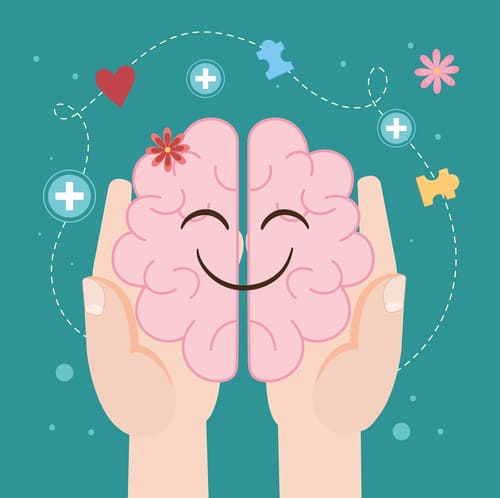Psychobiotics: Reduces stress and anxiety

What are psychobiotics?
Psychobiotics are living organisms that have a positive impact on mental health. They act directly on the enteric nervous system, also known as the 'second brain' located in the gut. This system houses the gut microbiota, composed of bacteria that influence mood and nervous system functioning.
Mechanism of action of psychobiotics
Psychobiotics, living organisms that benefit mental health, exert their action through different mechanisms. These are the three main ways of action:
Production of neurotransmitters and chemical compounds
Psychobiotics have the ability to influence the production of neurotransmitters and chemical compounds that play a key role in mood and nervous system functioning.
Some of these neurotransmitters are serotonin, dopamine and norepinephrine, which are key in the individual's behavior, as well as influencing memory and learning.

Modulation of the Hypothalamic-Pituitary-Adrenal (HPA) axis.
Psychobiotics also have effects on the modulation of the HPA axis, which is responsible for regulating the stress response and the production of related hormones. A proper balance in this axis is crucial for maintaining an adequate response to stress and anxiety situations.
Interaction with the immune system
In addition, psychobiotics interact with the immune system, which plays a significant role in maintaining mental health. A balanced and healthy gut microbiota can contribute to an adequate immune response and, therefore, to a better emotional and mental state.
These mechanisms of action of psychobiotics demonstrate their ability to directly influence brain functioning and mood. However, it is important to keep in mind that each psychobiotic has specific characteristics and should be chosen based on clinical evidence.
However, psychobiotics cannot replace a healthy lifestyle and regular visits to the doctor, so it is important to consider them as an adjunct in the treatment of stress and anxiety.
Use of psychobiotics in the treatment of stress and anxiety
Importance of choice based on clinical evidence
To ensure the efficacy of psychobiotics in the treatment of stress and anxiety, it is essential to select those with scientific support. The choice should be based on clinical studies that demonstrate their effectiveness and safety. It is advisable to consult a health professional specialized in the subject to receive appropriate guidance.

Complement to a healthy lifestyle
While psychobiotics can provide significant benefits in the management of stress and anxiety, it is important to keep in mind that they should not be considered as a sole solution. They should be used as a complement to a healthy lifestyle, including a balanced diet, regular physical exercise, proper stress management and adequate rest. These healthy habits are fundamental to improve mental health in general.
Medical consultation before starting any treatment
Before beginning treatment with psychobiotics for stress and anxiety, it is necessary to obtain the guidance of a health professional, such as a physician or psychotherapist. They will be able to properly assess the individual situation, determine the most appropriate dosage and type of psychobiotic, and monitor the patient’s progress. Medical consultation is essential for safe and effective use of these living organisms.
Advances and studies in the field of psychobiotics
ignificant advances are currently being made in research on psychobiotics and their clinical efficacy in the treatment of stress and anxiety. Several studies are focused on understanding the relationship between psychobiotics and the gut-brain axis, as well as identifying recommendations and precautions for their appropriate use.
Research on its clinical efficacy
Scientific research is shedding light on the efficacy of psychobiotics in the management of stress and anxiety. Controlled clinical studies have shown promising results in reducing the symptoms of these disorders, highlighting the improvement in mood and decreased stress response.
Relationship with the gut-brain axis
The connection between the gut and the brain, known as the gut-brain axis, is at the center of current research. It has been found that psychobiotics can influence this two-way communication, playing a key role in balancing mood and brain function.
Studies have revealed that psychobiotics can modulate the production of neurotransmitters and chemical compounds in the gut, which have direct effects on mental health. In addition, it has been observed that these living organisms can regulate the HPA axis, thus controlling the stress response and the production of related hormones.
Recommendations and precautions
Despite advances in research, it is essential to take precautions when using psychobiotics. It is recommended to choose them according to clinical evidence and under the supervision of a health professional.
In addition, it is important to remember that psychobiotics are not a substitute for a healthy lifestyle or visits to the doctor, and that a professional should always be consulted before starting any treatment.
Si quieres conocer otros artículos parecidos a Psychobiotics: Reduces stress and anxiety puedes visitar la categoría Menal Health.
